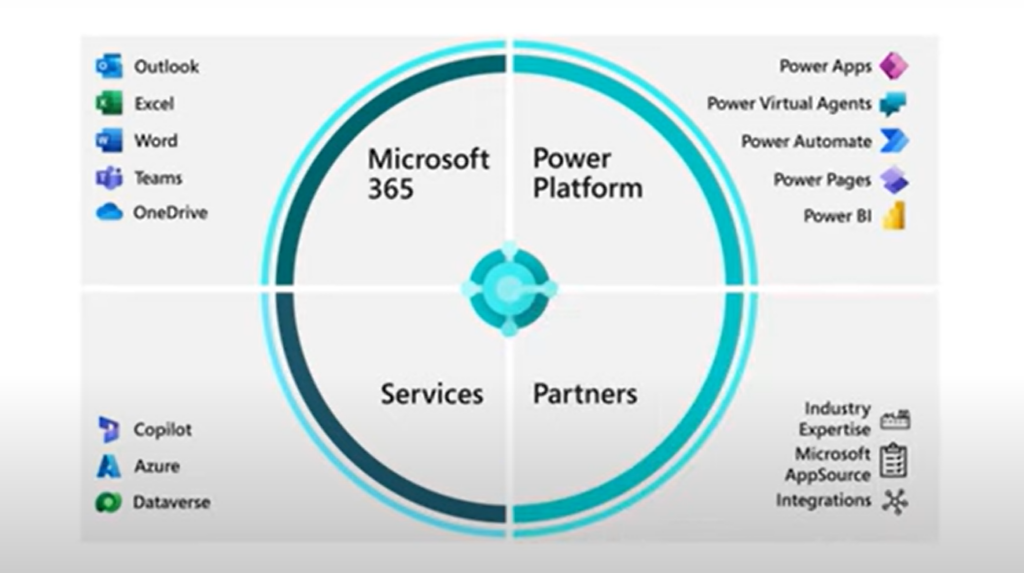In a perfect world, your Microsoft Dynamics Business Central implementation plan would go off without a hitch. Minimal risk. No surprises. However, in the not-so-perfect world we live in, Business Central implementation failures are more common than not, especially when you don’t have the right Business Central Partner working for you.
It’s estimated that anywhere from 55% to 75% of ERP implementations fail, making it one of the costliest mistakes a company can make.
ERP Implementation Failures and What They Cost
- When Hershey’s Chocolate’s ERP implementation failed during the Y2K panic, a rushed process resulted in ineffective systems testing, training, and data migration. The company was unable to satisfy an estimated $100 million in orders, and its stock dropped nearly 10%.
- Despite spending $400 million to upgrade its outdated legacy system, Nike invested in too-slow software with multiple bugs and a “glitch” that failed to anticipate market demand.
- Perhaps the most significant failed ERP implementations occurred at the U.S. Navy, which spent over $1 billion on four ERP pilot projects, all of which failed due to a lack of central coordination.
360 Visibility is no stranger to ERP implementation disasters, either, having cleaned up quite a few that resulted from other partners who failed to follow the proper methodology.
In one case, a company’s been working with their existing Microsoft Dynamics Partner for four years to implement Dynamics NAV. The implementation is still not complete, and the company is understandably frustrated. The partner will say the project is ready, but during testing, there are errors that the Partner denies exist. The company turned to us for help in finalizing the Microsoft Business Central implementation plan and providing proper testing, support, and training.

Why a Microsoft Dynamics Business Central Implementation Plan Could Fail
In our view, the primary reason Microsoft Dynamics implementation plans fail is not approaching the process strategically. The more prepared you are before beginning an implementation, the better it will go. From assessing existing tools to identifying possible incompatibility issues, you can greatly improve your chances of a smooth and successful transition by putting everything in place ahead of time.
Even one small misunderstanding of the Dynamics 365 implementation plan can result in a failed implementation. Multiple discussions should be held to determine requirements and talk about existing technology within your business. This avoids “walking into the unknown” and ending up with a system you ultimately don’t want or need.
Other factors we’ve seen impact failed Dynamics 365 Business Central implementations are:
- Using outdated time and materials quotes.
- Trying to apply outdated implementation and project management processes when what’s needed is a new methodology.
- Investing in basic packages that offer extremely limited consultancy and project management time, leaving customers without the guidance and help they need for the implementation.
- Microsoft Partners not devoting enough time to the process.
- Microsoft Partners recommending alternative solutions that can exceed a customer’s budget.
If you’re contemplating Microsoft accounting software, you must keep in mind that the implementation is likely to fail without a proven methodology and proper guidance. If you’ve already attempted an implementation and are unhappy with the results, 360 Visibility can help.
How long does it take to finalize a Microsoft Business Central implementation?

The implementation timeline for Microsoft Dynamics 365 Business Central can vary depending on several factors, including the complexity of your business processes, the level of customization required, and the size of your organization. Generally speaking, a straightforward implementation for a small to medium-sized business can take anywhere from a few weeks to a couple of months. This timeline typically includes activities like data migration, configuration, user training, and testing.
For larger enterprises with more complex requirements, the Dynamics Business Central implementation timeline may extend to several months or even a year. In such cases, a thorough assessment of existing systems and processes, along with extensive customization and integration work, can contribute to a longer project duration.
To expedite the implementation process, it’s crucial to engage with an experienced Microsoft Dynamics 365 Business Central partner. One that’s versed in Microsoft business applications and can help streamline the deployment, provide best practices, and ensure a successful transition.
- Simple Implementation:
- Timeline: A simple implementation of Dynamics 365 Business Central is typically the quickest. It can range from a few weeks to a couple of months.
- Key Characteristics: This scenario is suitable for small to medium-sized businesses with straightforward processes and minimal customization needs.
- Activities: The focus is on basic configuration, data migration, and essential user training.
- Advanced Implementation:
- Timeline: An advanced implementation for Dynamics 365 Business Central usually takes several months, typically between three to six months.
- Key Characteristics: This level is applicable to businesses with more complex processes and customization requirements.
- Activities: In addition to configuration and data migration, there may be a need for more extensive customization, integration with other systems, and thorough user training.
- Complex Implementation:
- Timeline: Complex implementations can extend beyond six months and may take up to a year or more.
- Key Characteristics: This level is for larger enterprises with intricate processes, extensive customization demands, and multiple integrations.
- Activities: A complex implementation entails a comprehensive assessment of existing systems, highly tailored customization, deep integration work, and ongoing support to ensure a seamless transition.
Ultimately, the key to a successful Microsoft Business Central implementation plan is careful planning, clear communication, and a well-defined project scope tailored to your organization’s specific needs.
What a Successful Microsoft Business Central Implementation Plan Looks Like
It takes time, resources, and industry experience to make a Microsoft Business Central implementation plan go smoothly. If you’ve decided to work with a new Microsoft Dynamics Partner, here are some questions to ask them before you commit:
- Do you have experience in our business model and market sector?
- Do you follow a standard project plan for Business Central implementation, and does it meet our requirements?
- What resources do you need from our company for a successful implementation?
- How much assistance and support do we receive during the process?
- Can you tell me any success stories with companies like mine?
- Will you support us post Go-Live and as our future needs evolve?
Only when both sides understand each other needs can you have a successful ERP implementation.
How Much Does a Microsoft Business Central Implementation Plan Cost?
The cost of implementing the best cloud ERP such as Business Central can vary significantly depending on several factors. These factors include the size and complexity of your organization, the scope of customization required, the number of users, and whether you choose an on-premises or cloud-based deployment. Here’s a general breakdown of the cost when considering ERP accounting tools:
- Software Licensing: The primary cost is the licensing fee, which is typically based on the number of users and the specific features/modules you require. Licensing costs can range from a few hundred to several thousand dollars per user per year.
- Implementation Services: The cost of implementation services can vary based on the complexity of your implementation. Simple implementations may cost less, while more complex ones can be significantly more expensive. Implementation services cover activities like configuration, data migration, customization, and training.
- Hardware and Infrastructure: If you choose an on-premises deployment, you’ll need to invest in server hardware and infrastructure, which can add to the overall cost.
- Integration: If you need to integrate Business Central with other systems or applications in your organization, there will be additional costs associated with development and integration work.
- Training and Support: User training and ongoing support are essential aspects of a successful implementation. The cost of training and support services should be factored in.
- Consulting and Professional Services: Engaging with Microsoft Cloud AI Partners or consultants for guidance and expertise during the implementation can incur consulting fees.
- Data Migration: The complexity and volume of data to be migrated from existing systems to Business Central can impact the cost. Data migration tools and services may be required.
- Customization: If your business processes require significant customization or development of custom extensions, this will add to the cost.
- Subscription Fees: For cloud-based deployments, you’ll pay recurring subscription fees based on the number of users and the specific features/modules you use.
To get an accurate estimate for your organization’s Microsoft Business Central implementation plan, it’s advisable to work with a Microsoft Cloud AI Partner or implementation specialist. They can assess your unique requirements and provide a detailed cost estimate tailored to your needs. Keep in mind that while there are upfront costs, the benefits of improved efficiency, streamlined processes, and better decision-making can outweigh the initial investment in the long run.
Our Within Budget Promise
We know Microsoft Business Central implementation plans inside and out. Using our Business Impact Assessment approach, we can confidently scope out a Business Central Implementation project with you to deliver a not-to-exceed budget and scope so that you have an implementation proposal with no surprises. And that no surprise promise continues throughout the implementation process.
Are you ready to check out on your current implementation partner? Check-in with 360 Visibility today and let us run a Business Impact Assessment and take over where you left off in your implementation journey. We offer the training, integrations, and testing that helps you avoid a failed implementation and take advantage of every advantage Microsoft Dynamics 365 Business Central provides. There’s no simpler way to get your Microsoft Business Central implementation plan back on track.




